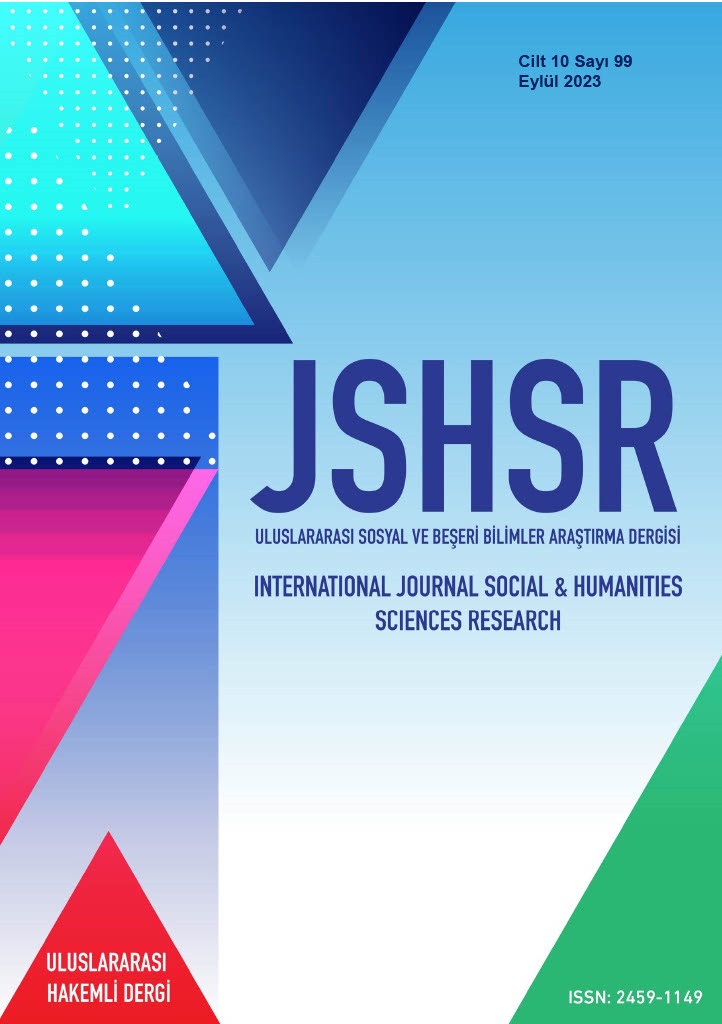The Romantic Period In Opera After The French Revolution And Operas Inspired By The Revolution
DOI:
https://doi.org/10.5281/zenodo.8415704Keywords:
French Revolution, Opera, The Romantic Period In OperaAbstract
The French Revolution, which introduced concepts such as freedom, fraternity and equality and affected the whole world, took place between 1789 and 1799. The Revolution, which is accepted to have started with the uprising of ideas in the society, led to the publication of the Declarations of Human Rights and then Women's Rights, which will only be finalized and remain valid today. In this context, while the nobles lost their privileges with the Revolution, the bourgeois class became a partner in power. From the last quarter of the 18th century onwards, the social and political transformations in Europe, America and England differentiated art and the base of art production, as in many other fields. While art production left itself to new methods, it became a platform where free thought and individual freedoms were defended. The reforms made in this period are among the important factors that determined the future direction of art and caused the major musical changes of the period.
The period covering the end of the 18th century and the middle of the 19th century in Classical Western Music in general, and also in opera, is called the "Romantic Period". In the operas that emerged immediately after the French Revolution, it is seen that composers turned their backs on the standard forms and patterns of the previous era and turned to freely shaping their works. In addition to this, it led to changes such as the transition from sacred to non-sacred subjects, the reduction of religious subjects to the material world and the depiction of daily life in cities and villages, the ability of ordinary people to be the subject of art, and the entry of the people into the world of kings and nobles. In addition, it has been observed that the composers developed a national reflex by going out of the mold and returning to the "I" element in the opera works that emerged, and in this context, the richest works in the field of opera emerged. Composers, whose emotions and dreams gained value, became free and proved that their works could include any subject. This was a revolution that brought the productivity of art to its peak. In this study, how the French Revolution and the new order that came with it found a reflection on the opera stage and the opera works that emerged were analyzed.
References
Altar, C. M. (2010). Opera Tarihi. Pan Yayıncılık.
Arslan, A. (2013). Fransız Devrimi ve 1789 Fransız Yurttaş ve İnsan Hakları Bildirisi. Genç Hukukçular Hukuk Okumaları Birikimler, 9-27.
Ateş, T. (2011). Siyasi Tarih. İstanbul Bilgi Üniversitesi Yayınları.
Cevad Memduh Altar (1939). Romantik Opera (19. yüzyılda opera). http://cevadmemduhaltar.com/ romantik-opera-radyo-konusmasi.html
Civelek, J. (1989). 1789 Fransız Bildirisi ve 1948 Evrensel İnsan Hakları Bildirisi. Milletlerarası Hukuk ve Milletlerarası Özel Hukuk Bülteni, 9 (1), 1- 9.
Declaration of Man Rights and Citizens (t.y.). İnsan ve Yurttaş Hakları Bildirisi Temsili Görseli https://en.wikipedia.org/wiki/Declaration_of_the_Rights_of_Man_and_of_the_Citizen
Ekinci, E. (2016). Devrimden Günümüze Fransız Siyasal Sisteminin Evrimi. Kırıkkale Üniversitesi Sosyal Bilimler Dergisi, 6(1), 149-171.
Erbay, A. (2009). İnsan Hakları ve Demokrasi Açısından Yurttaşlık. International Congress on Intercultural Dialogue and Education Human Beings, Society, Intercultural Dialogue and Education at the Beginnings of the 21st Century, Uludağ Üniversitesi. 2-8.
Gedik, N. Y. (1999). Felsefe Açısından Temel İnsan Hakları Belgeleri. [Yayınlanmamış Yükseklisans Tezi]. SB Enstitüsü, Hacettepe Üniversitesi.
Gök, K. (2017). Romantizm ve Romantizm Akımının Fotoğraf Sanatına Etkisi. Bartın Üniversitesi Edebiyat Fakültesi Dergisi, 2(2), 41-72.
Işıktaş, B. (2015). Avrupa’da Devrimler Çağında Toplumsal Değişim, Kültür ve Müzik Yaşamına Dair Notlar. Beykent Üniversitesi Sosyal Bilimler Dergisi, (8), 6-31.
Kaygısız, M. (2004). Müzik Tarihi, Başlangıçtan Günümüze Müziğin Evrimi (2. Baskı.). Kaynak Yayınları.
Mezzo (t.y.). Verdi’nin Don Carlos Operasından Bir Sahne. https://www.mezzo.tv/en/Opera/Verdi%27 s-Don-Carlos-at-the-Op%C3%A9ra-Royal-de-Wallonie-Li%C3%A8ge-6684
Öner, E. (2020). Romantik Dönem: Devrimler Çağı ve Opera. [Yayınlanmamış Yükseklisans Tezi]. SB Enstitüsü, Başkent Üniversitesi.
Ristik, J. (2015). Right To Property From Magna Carta To The Europian Convention On Human Rights. Special addition, Magna Carta: 800, Volume 11, Issue: 1. doi: 10.1515/seeur-2015-0018.
Şahin, İ. (2018). Batı Edebiyatında Akımlar. I. Anadolu Üniversitesi Yayınları.
Tanilli, S. (1981). Uygarlık Tarihi (5. Baskı.). Say Kitap.
The Official Travel and Tourism site of Greater Miami & Miami Beach (t.y.). Florida Grand Opera https://www.miamiandbeaches.com/l/arts-and-culture/florida-grand-opera/2926
Yakut, K. (1999). Çağdaş Dünya Tarihi. Anadolu Üniversitesi Yayınları.
Yener, F. (1992). 100 Opera. Bateş Yayınları.
Downloads
Published
How to Cite
Issue
Section
License
Copyright (c) 2023 INTERNATIONAL JOURNAL OF SOCIAL HUMANITIES SCIENCES RESEARCH

This work is licensed under a Creative Commons Attribution 4.0 International License.


